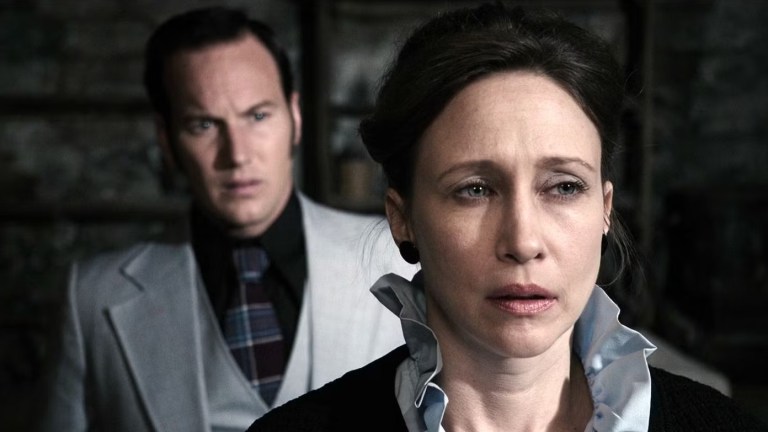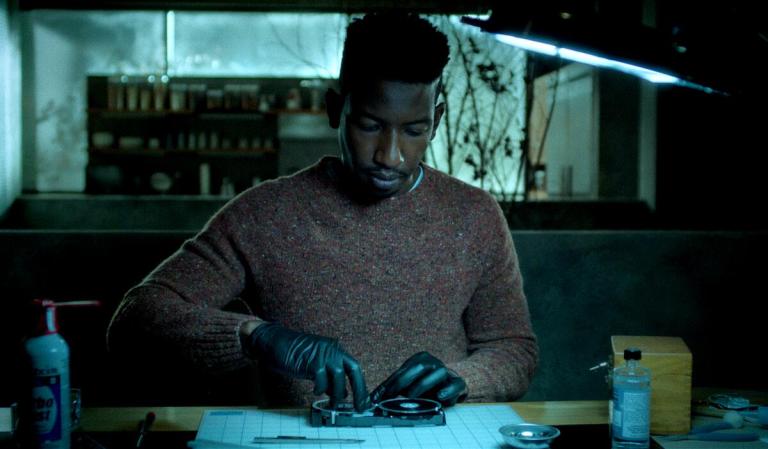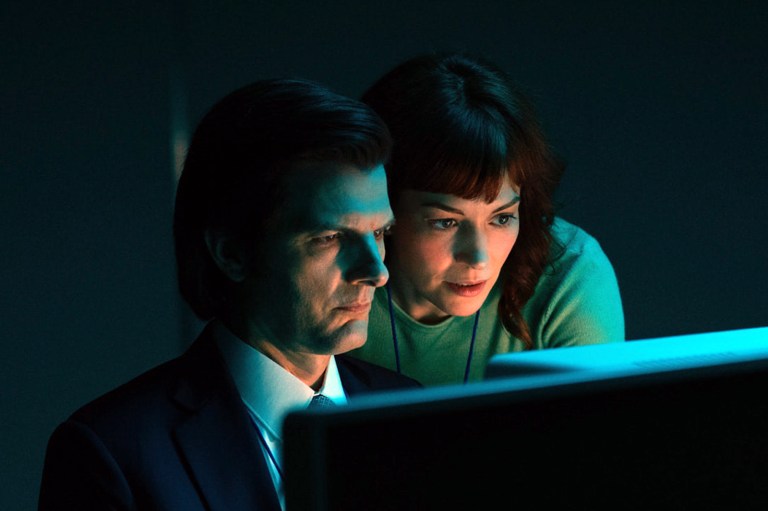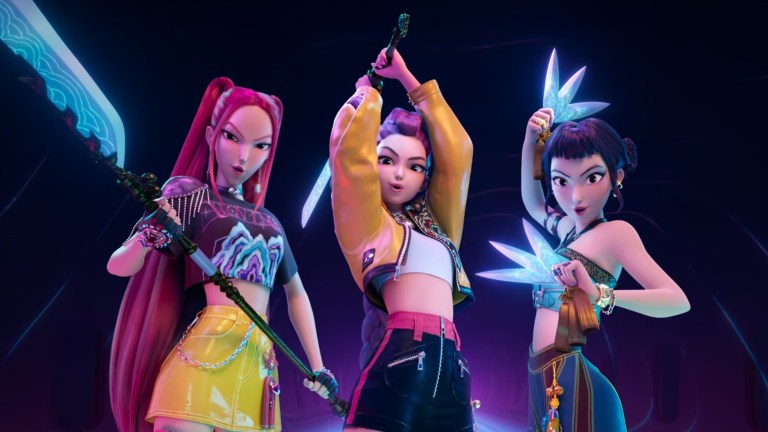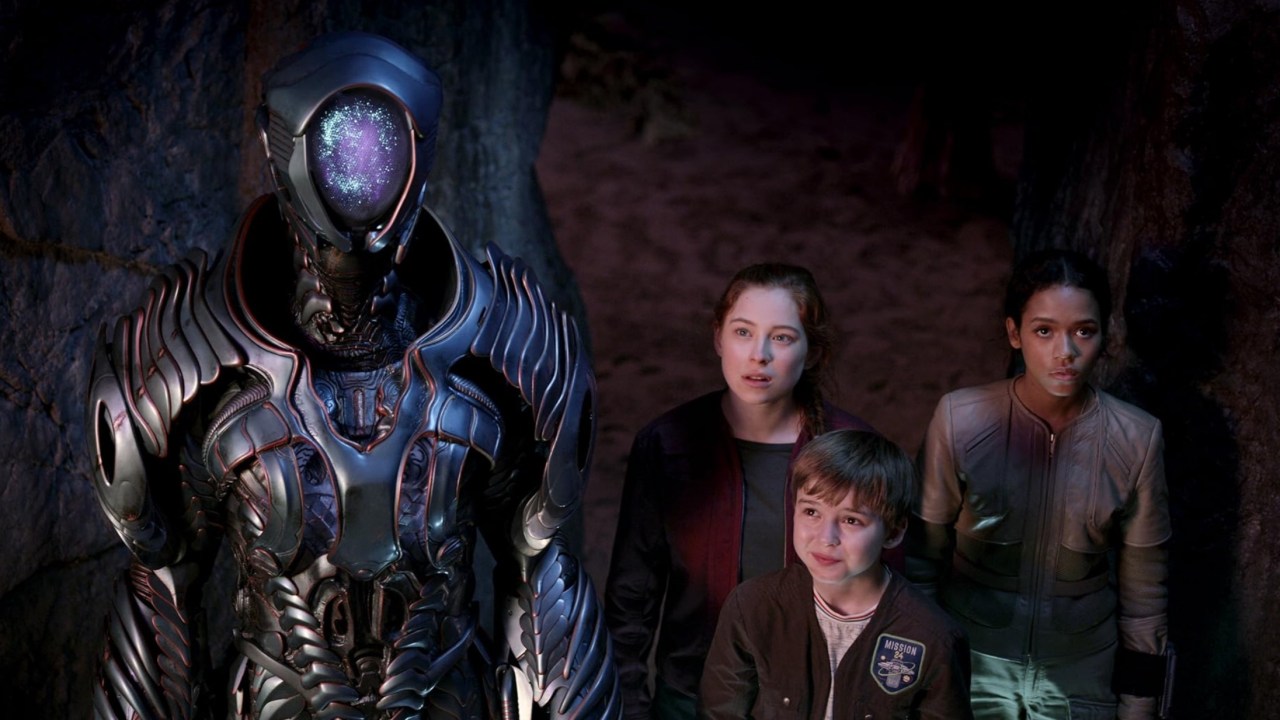
8 Epic Sci-Fi Shows That Are Really Just Family Dramas In Disguise
Here are eight shows that masquerade as science fiction but are really just soap operas where the family drama might accidentally destroy the universe.
By ![]() Mishal Zafar
Mishal Zafar
Turns out your favorite sci-fi shows have been lying to you this whole time — those spaceships and time machines are just expensive therapy props for characters working through daddy issues and sibling rivalry.
Science fiction TV has been pulling a fast one on audiences for years. Sure, there are spaceships and monsters and alternate timelines, but peel back the flashy special effects and what you’ll find underneath is basically your average family sitcom — just with more explosions. These shows hook viewers with promises of mind-bending concepts and futuristic tech, then spend most of their runtime exploring whether Dad approves of your life choices. The laser guns are just window dressing. What keeps people binge-watching until 3 AM isn’t the world-building — it’s watching characters work through the same relationship drama that happens at every Thanksgiving dinner.
Lost in Space
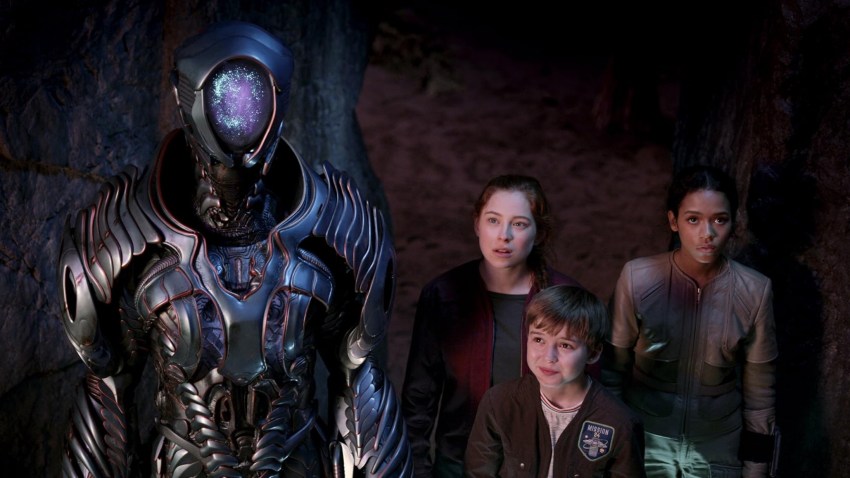
Netflix took the campy 1960s series and turned it into an hour-long therapy session disguised as a survival story. The Robinsons crash-land on an alien planet, but honestly, they could be stuck in a broken-down RV in the Nevada desert, and the show would work just as well.
Dr. Smith isn’t really a villain — she’s more like that toxic family friend who shows up uninvited and somehow makes everyone’s existing problems ten times worse. Meanwhile, the parents spend most of their screen time having the world’s most expensive marriage counseling session while their kids deal with typical sibling stuff, except the family dog happens to be a killer robot. Will’s friendship with said robot? Classic lonely kid finding acceptance wherever he can get it. The alien threats are just fancy metaphors for all the ways families can fall apart when they’re under pressure.
The Umbrella Academy
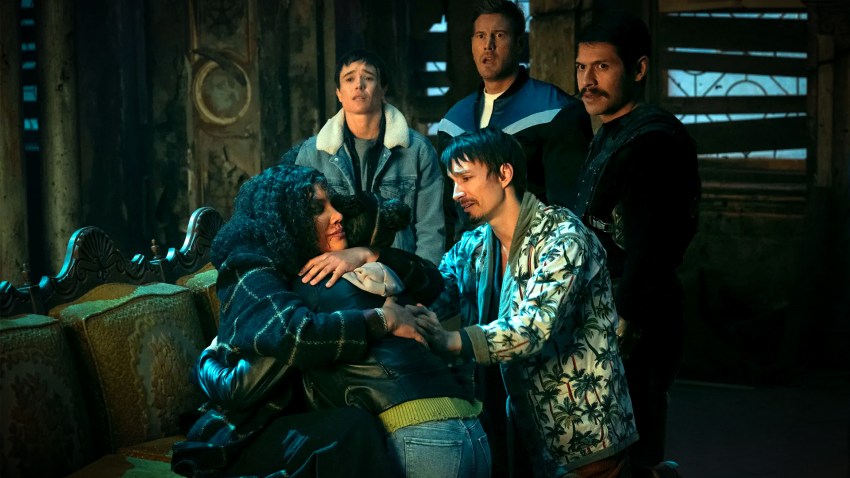
Take away the superpowers and time travel nonsense, and this show is just about a bunch of adults who never got over their terrible childhoods. The apocalypse keeps happening because these people can’t sit through a family dinner without someone having a meltdown.
Klaus talks to dead people, but really, he’s just the family member who can’t move on from past trauma. Five bounces around through time trying to fix everything — sounds like any overachieving siblings you know? Viktor’s world-ending tantrums are what happen when the family scapegoat finally snaps. The show keeps threatening to destroy reality, but the real catastrophe is watching these damaged adults try to have a normal conversation with each other. Every season basically asks the same question: Can you heal from a toxic upbringing, or are you doomed to repeat the cycle?
For All Mankind
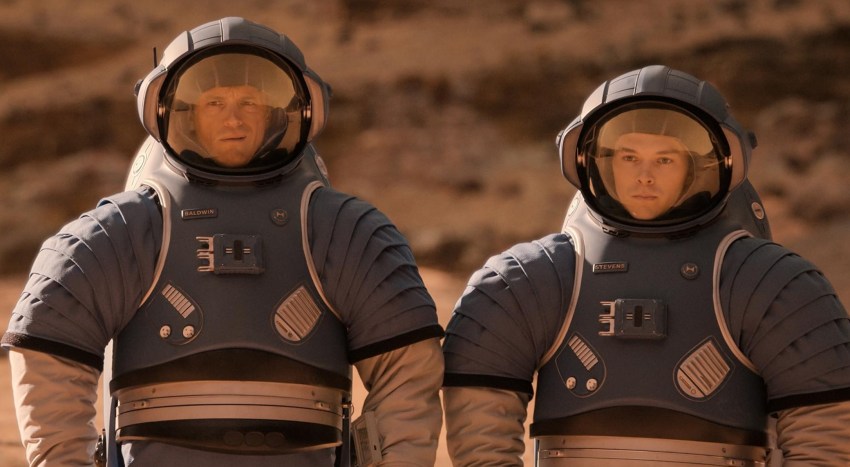
Alternate history where the Soviets beat America to the moon sounds like hard sci-fi, right? Wrong. This show uses space exploration as an excuse to examine how career ambitions mess up marriages and friendships.
The moon base might as well be an oil rig or a military deployment — it’s just a workplace that keeps people away from their families for months at a time. Every technical crisis in space gets resolved pretty quickly, but the relationship drama back on Earth? That’s what really drives the plot. Characters spend more time arguing about their feelings than they do conducting scientific experiments. The space program becomes a backdrop for exploring whether you can have it all — career success and a functional family life. Spoiler alert: probably not.
Loki
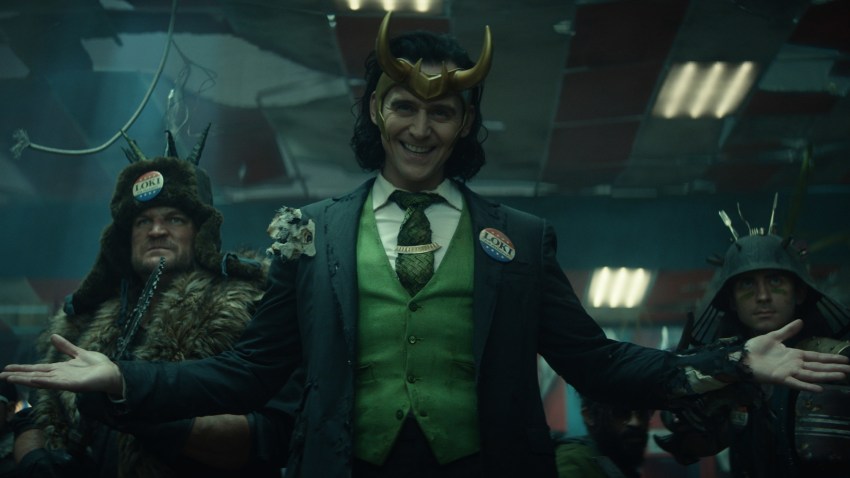
The God of Mischief gets dragged through multiple timelines and realities, but this whole multiverse adventure is basically an extended therapy session. Tom Hiddleston spends six episodes talking to different versions of himself, which is either brilliant metaphor or the writers got really lazy.
Sylvie represents all of Loki’s self-loathing and abandonment issues. The other Loki variants are like attending a support group for people with the same childhood trauma. The Time Variance Authority might control all of existence, but they’re really just another dysfunctional family system. All that stuff about free will versus predestination? That’s just a fancy way of asking whether people can actually change or if they’re stuck repeating the same patterns forever. Heavy themes for a show about a guy in a horned helmet.
Colony
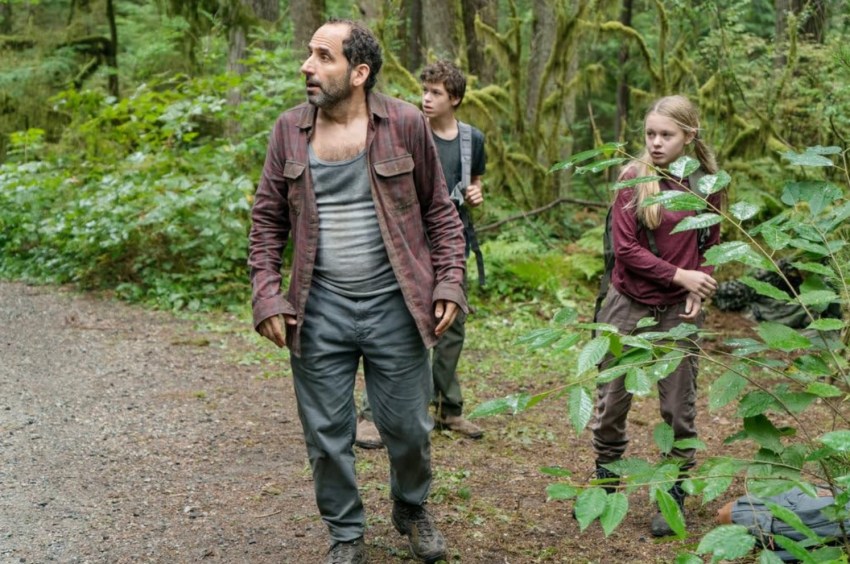
Alien occupation story that’s actually about marriage under extreme stress. Will Bowman collaborates with the invaders to protect his family, which creates exactly the kind of secrets and lies that destroy relationships in any drama, sci-fi, or otherwise.
The resistance movement subplot? That’s just different ways people respond to pressure and how those choices affect everyone around them. Some folks join the resistance, others try to blend in and survive. Families implode when dad decides to work for the occupiers while his teenage son wants to blow stuff up. Take out the alien overlords, and this could easily be a World War II drama about French collaboration. Or any story where an outside force divides a community. The spaceships don’t really matter — it’s about what happens when survival instincts clash with moral principles.
Sense8
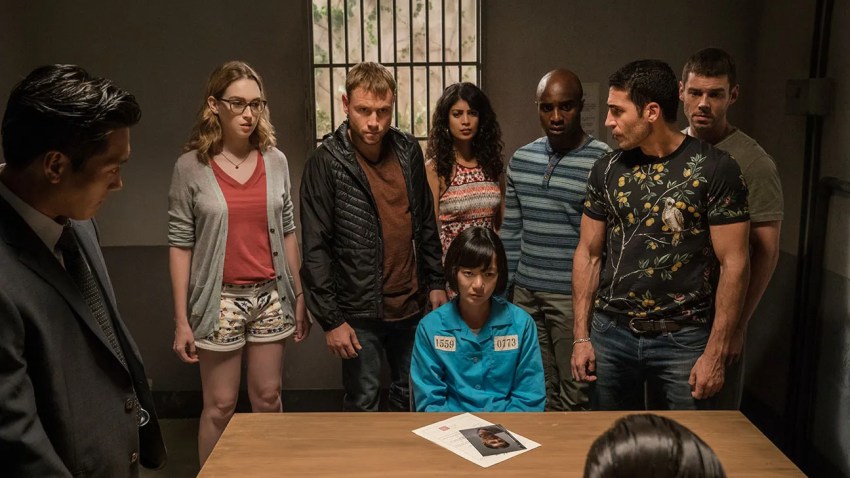
So eight random people across different continents suddenly share a psychic connection. Sounds trippy, but it’s really asking a simple question: what if you could actually understand what someone else’s life feels like instead of just pretending to care on social media?
The characters aren’t dealing with alien invasions or time paradoxes. Nomi’s fighting her family’s transphobia. Kala’s stuck in an engagement she doesn’t want. Capheus is trying to survive Nairobi’s slums. Pretty ordinary human problems, except now they can tap into each other’s experiences and skills when things get desperate. The evil organization hunting them represents all the social forces that try to keep people isolated and prevent authentic connection. It’s less about sci-fi conspiracy and more about the transformative power of finding your chosen family.
The Mandalorian
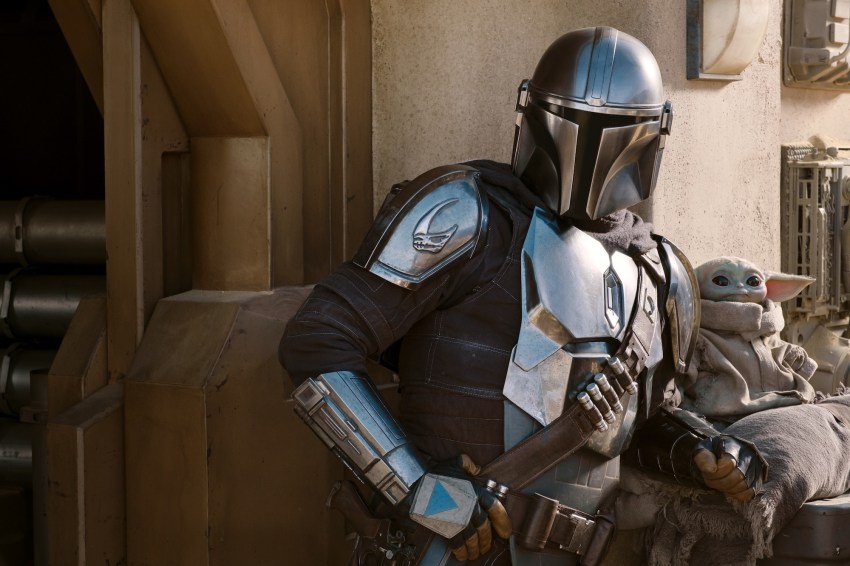
Strip away the Star Wars branding and you’ve got the most basic story template in entertainment: reluctant father figure learns to care for a child. Din Djarin’s character arc follows the same beats as every “tough guy gets stuck with a kid” movie ever made.
Baby Yoda’s Force powers matter way less than his role in melting the Mandalorian’s heart. Each planet-hopping adventure teaches both characters something about trust and sacrifice — standard parenting drama, just with better production values. The exploration of Mandalorian culture and creed? That’s just examining how single parents balance their own identity and history with the responsibilities of raising a child. The helmet stays on, but the emotional walls come down.
Severance
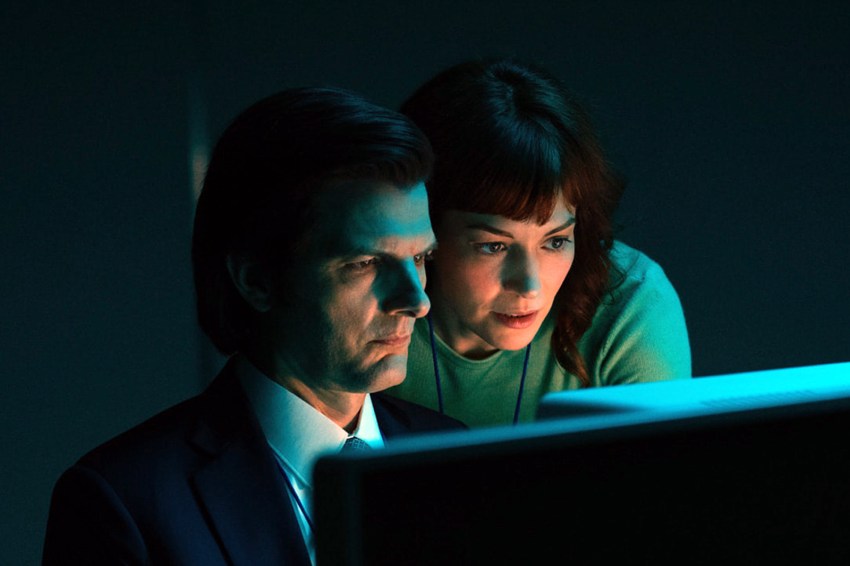
The premise sounds like Black Mirror: surgically separate your work memories from your personal life. But the show uses this extreme scenario to explore how people compartmentalize trauma and avoid dealing with painful experiences.
Mark’s journey toward integrating his two selves mirrors anyone’s process of confronting buried emotions and difficult memories. The bizarre corporate setting and mysterious work assignments are just exaggerated versions of how institutions manipulate people’s need to avoid pain. Lumon Corporation might have figured out how to literally split consciousness, but people do this kind of psychological compartmentalization all the time. The sci-fi premise just makes the metaphor visible.
The Last of Us
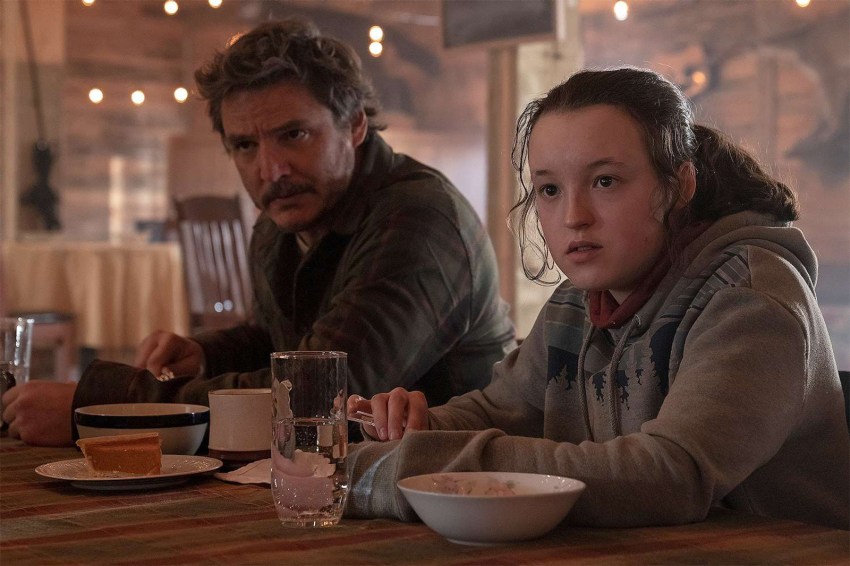
Zombie apocalypse shows are everywhere, but this one succeeds because it focuses on the relationship between Joel and Ellie rather than the infected. Their surrogate father-daughter dynamic carries the entire series.
Joel lost his biological daughter and spent twenty years as an emotional zombie. Ellie grew up in a world that offered her very little safety or care. Their journey together becomes about learning to love again after devastating loss. The fungal outbreak and hostile survivors create obstacles that test their bond, but the real stakes are emotional. Can two damaged people rebuild their capacity for trust and connection? The post-apocalyptic setting just raises the stakes on a very human story about healing and family.

